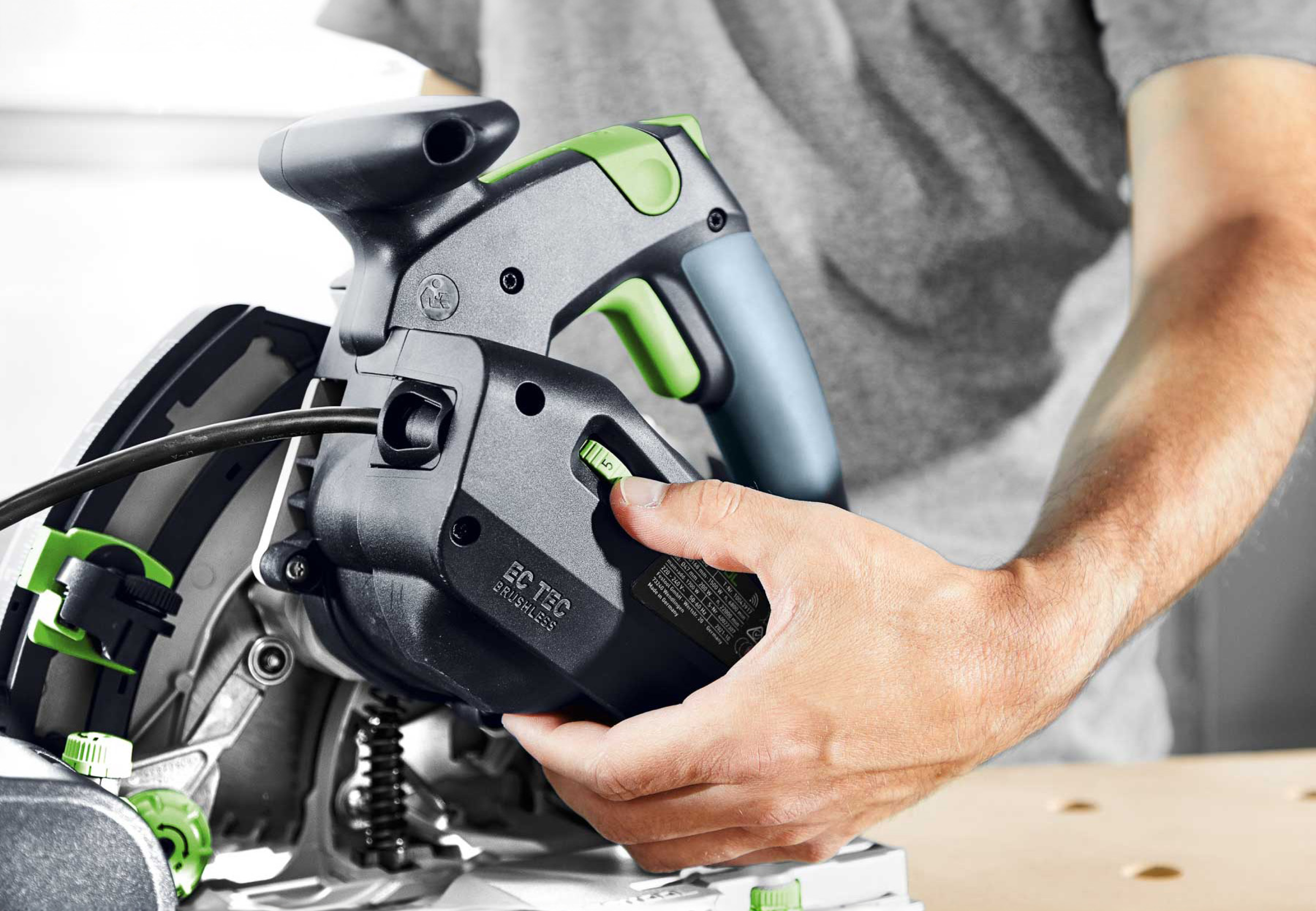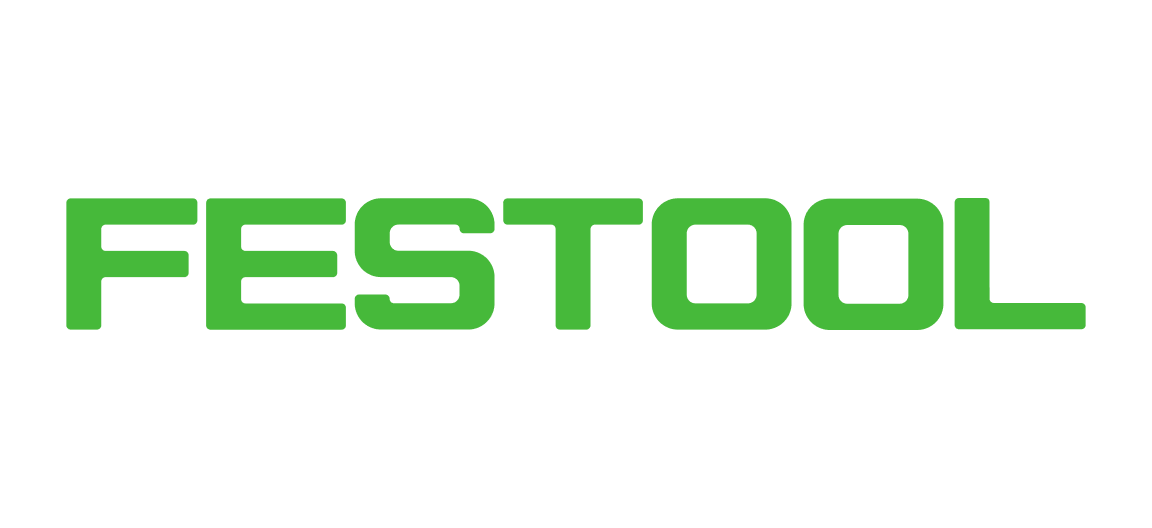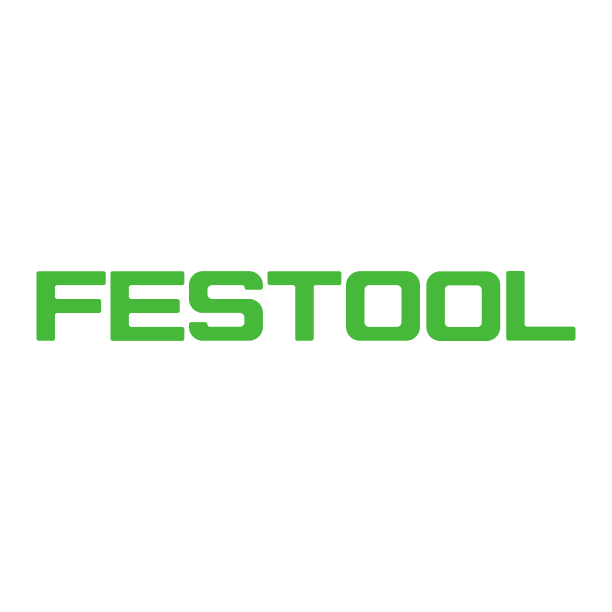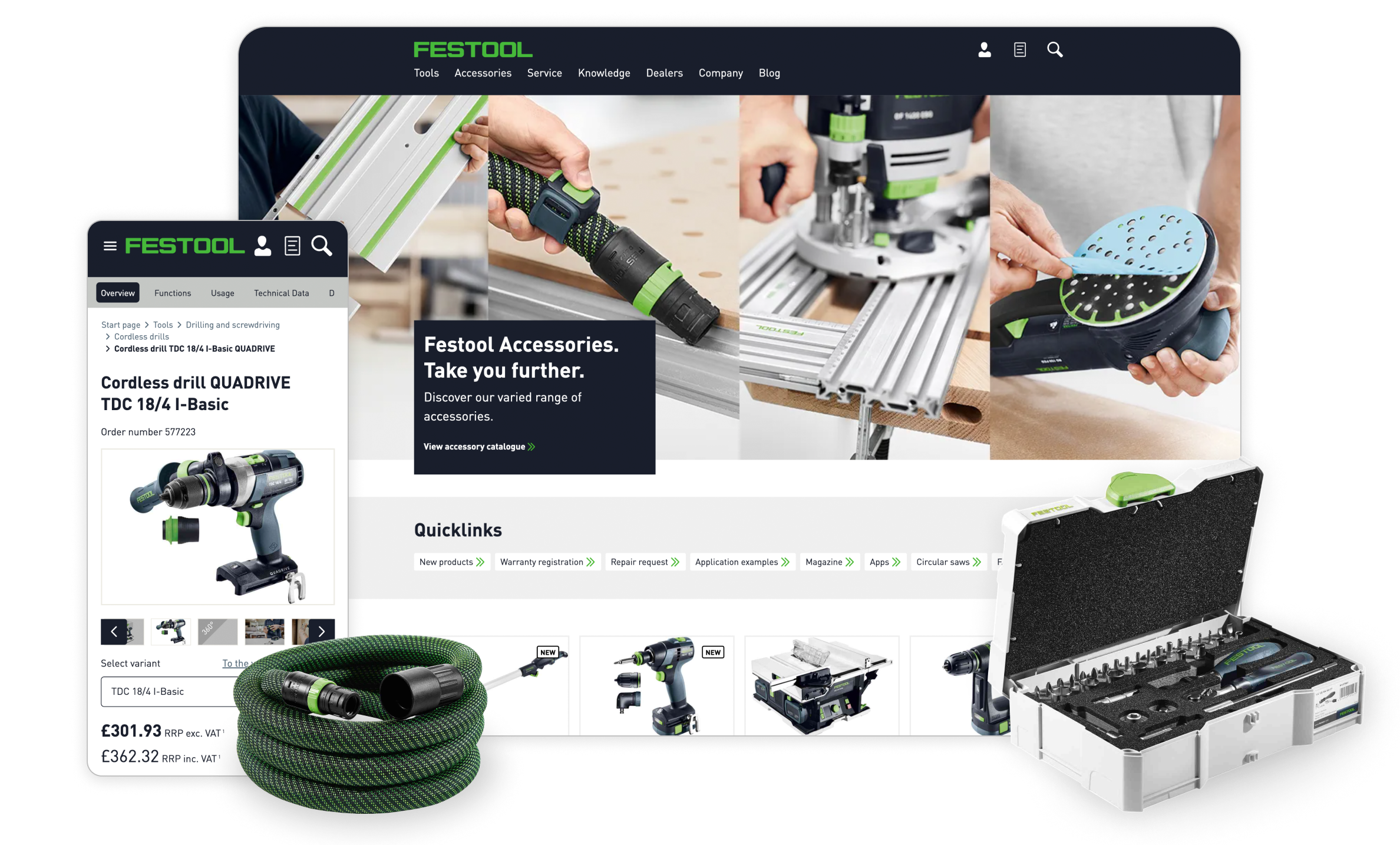

39
Neidlingen, Germany
Wholesale
B2B, D2C
With a 90-year history as a manufacturer, Festool has historically depended on specialized retailers and dealers throughout Germany to distribute its comprehensive range of power tools to B2B companies, professional woodworkers and painters, as well as ambitious DIY workers. While this approach has proven successful, the company faced limitations in capturing and comprehending data related to customer needs and the purchasing process. Specifically, insights were only accessible about customers who sought a warranty certificate on the company’s website after purchasing a Festool power tool, which made up approximately 40% of its customer base.
Moreover, the company observed a trend where customers discovered their products predominantly online, often directly from Festool’s website, and proceeded to make online purchases in marketplaces or specialized retailers. Market surveys conducted by Festool revealed that a significant portion of these customers prefer to buy directly from the manufacturer. Armed with these insights, the company devised an omnichannel sales strategy to align with customer expectations regarding where to discover and purchase Festool’s products.
At the same time, Festool boasts a diverse range of over 2,700 available products, including accessories, consumables and over 15,000 spare parts. Given the extensive product range, it’s impractical for any retailer to list and stock all these items for immediate purchase.
Establishing a D2C (direct-to-consumer) store has become a crucial asset for the company, serving two primary objectives. Firstly, it facilitates the collection of feedback on the company’s products and customer experiences, fostering a deeper understanding of customer needs. Secondly, the D2C store aims to offer customers access to Festool’s complete portfolio of products and accessories in a centralized location, accompanied by top-notch fulfillment and loyalty services that meet customer expectations.
To bring the company’s vision to life, Festool required an unparalleled level of flexibility and scalability that only a modern commerce solution can offer. Combined with the manufacturer’s do-it-yourself (DIY) ethos, it was evident that digitizing commerce to meet the company’s goals needed the adoption of a composable infrastructure from the outset.
The company evaluated the top five leaders in the eCommerce space by developing proofs of concept (POCs) with use cases that could be easily integrated via APIs into Festool’s technology stack. Key criteria for selection encompassed the ease of integration and the quality of API documentation, serving as the foundation for technical teams to implement eCommerce components efficiently.
When assessing commercetools Composable Commerce, Festool utilized a set of APIs to integrate customer data into its shop system. Another notable use case during the POC phase was the integration of the company’s login service, a process that proved so smooth and straightforward that ultimately convinced internal stakeholders to choose commercetools as Festool’s digital partner.
As Festool embarked on the implementation process, it first launched an online shop for spare parts in 2022, catering specifically to direct customers. The company began by focusing on one customer journey: Instead of having customers call or send an email to order spare parts, followed by manual data entry and invoicing in the ERP system by an employee, Festool automated this labor-intensive ordering process as the first step. By systematically addressing pain points with an incremental rollout approach, Festool realized benefits early and accelerated time-to-value.
Since then, Festool has broadened its eCommerce footprint for the entire product portfolio in Germany. Additionally, the company introduced sophisticated channels, such as mobile apps that enable customers to order, manage and communicate directly with Festool. Aligning with its DIY culture, Festool developed all frontends internally, seamlessly integrating digital storefronts with commercetools’ commerce engine via APIs to craft unique and personalized experiences.
With a composable architecture, we were able to build a robust system that allows Festool to bring its strategy to life, from D2C sales to omnichannel commerce and international expansion. Achieving such ambitious goals while accelerating time-to-value in only five months was made possible by the flexibility of our composable stack powered by commercetools. Not only can we easily integrate best-of-breed technologies but we can also plug our DIY applications that differentiate Festool from competitors, creating a custom tech stack that fully meets our business and customer needs.
Head of E-Commerce, Festool

The digital journey powered by composable architecture has proven highly successful for Festool. The company can now swiftly implement features such as new channels like mobile apps, payment methods and promotions. The impressive achievement of reducing time-to-market for creating and scaling capabilities, as well as embracing omnichannel commerce, stands out as a significant milestone for the company.
International eCommerce marks the next frontier for the Germany-based manufacturer, as it extends its shop to numerous countries, fully localizing each online shop according to each market’s unique requirements. Leveraging commercetools’ APIs, the company can easily localize and customize functionality to align with the specific demands of each market, all the while consolidating all eCommerce operations in one commerce platform.
Empowered by the ability to capture and analyze relevant data through a D2C approach, Festool has automated all processes and customer communications within five months, making the company more efficient and customer-driven as a result. With a robust and future-proof commerce system behind the scenes, the company is poised to continue bringing high-quality power tools to craftspeople in a seamless, and now global, way.

Streamlined cart and order processes for an optimized shopping experience on Festool’s webshop.
Can easily add new products and variants, as well as manage pricing and tax across multiple brands and countries.
Allows tracking of stock quantity per SKU and supply channel.